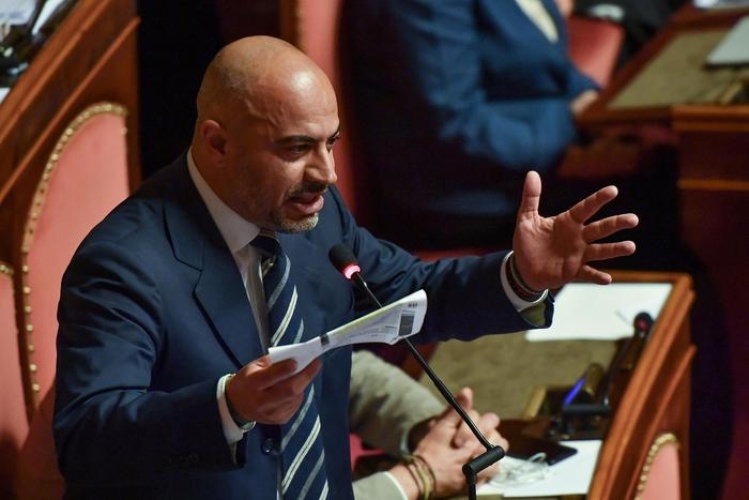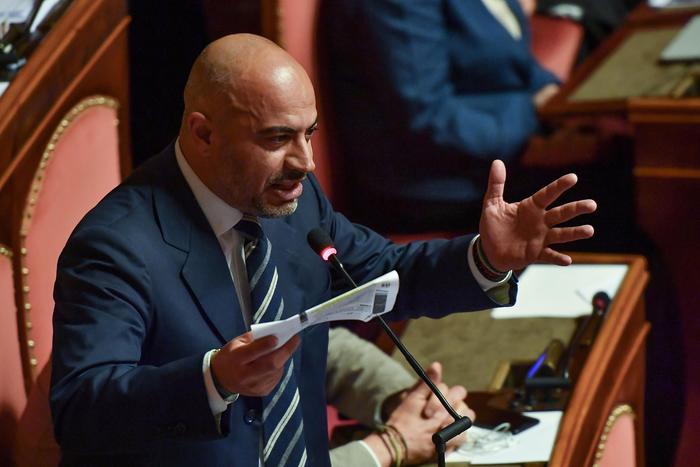Gianluigi Paragone, a former TV journalist, presented his “Italexit” party on Thursday, just days after meeting with Brexit architect Nigel Farage in London.
“We can no longer be blackmailed by countries that offend the great prestige of Italy,” Paragone said, adding that only a “really sovereign state”, like Britain, can address the economic crisis the pandemic has provoked.
It remains to be seen if Paragone’s movement can capitalise on the anti-EU sentiment which has grown among Italians in recent years.
Paragone left the anti-establishment Five Star Movement (M5S) soon after it formed a coalition government with the pro-European Democratic Party (PD) last year, softening its critical attitude towards Brussels institutions.
Even Matteo Salvini’s right-wing League, until recently the main rallying point for eurosceptics, has moderated its stance against Brussels and the euro in a bid to gain respectability.
Many Italian political commentators questioned the timing of the announcement, coming as the EU reached a deal on Tuesday to launch an economic Recovery Fund worth €750 billion, which the bloc’s supporters say shows its renewed cohesion and vision.
Prime Minister Giuseppe Conte said earlier on Tuesday that 28 per cent of the package would go to Italy in a mix of grants and loans that could “change the face of the country”.
There was a perceived initial failure on the bloc’s part to respond quickly enough to the coronavirus outbreak in Italy, but since then, support for the EU has risen again.
“The others want to change Europe, we want to quit,” Paragone said after the EU deal was struck.
The European issue has dominated Italian politics in recent years, with eurosceptics blaming the EU for the country’s chronic economic stagnation and its difficulties in handling migrant arrivals from across the Mediterranean.
A Eurobarometer survey in 1998 showed 69 per cent of Italians supported EU membership, while in 2002, after the introduction of euro notes and coins, Italy was the second most pro-euro nation after Luxembourg, with 79 per cent expressing a positive opinion.
A survey by pollster SWG at the end of May showed just 39 per cent of Italians said they trusted the EU.












